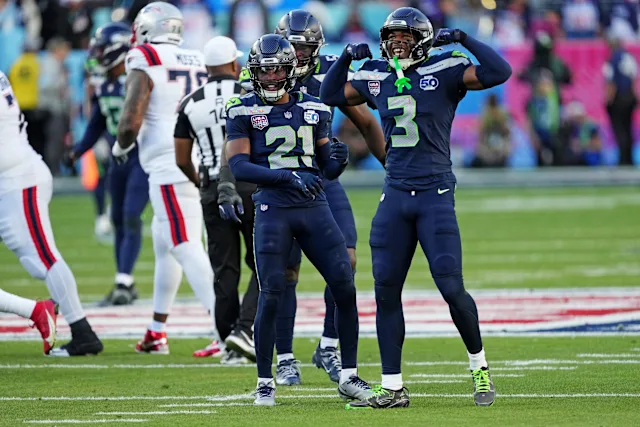
Freepik
Wisconsin’s approach to sports betting remains one of the most restrictive in the U.S. While sports wagering is technically legal, it is only allowed on tribal lands and governed by specific tribal-state agreements. Wisconsin’s framework is not as accessible and available as neighboring states, which have a wider range of online and commercial betting options.
Legal Sports Betting in Wisconsin: Limited to Tribal Casinos
Starting in 2025, sports betting will be legal only in person at certain tribal casinos throughout Wisconsin. This model excludes commercial sportsbook operators and limits online access to more players.
Where Sports Betting is Allowed
Six federally recognized tribal nations are in charge of twelve retail sportsbooks. These include:
Oneida Nation
Forest County Potawatomi
St. Croix Chippewa Indians
Lac du Flambeau Band of Lake Superior Chippewa
Red Cliff Band of Lake Superior Chippewa
Sokaogon Chippewa Community
All venues are located on tribal lands and adhere to negotiated agreements between the tribes and the state government.
In-Person Only Model
It is necessary to bet on sports on-site. Mobile betting apps are available for some tribes, like the Oneida Nation, but due to geofencing and compact restrictions, they can only be used by users on tribal property.
Why There Is No Statewide Online Sports Betting
Absence of State Legislation
Wisconsin has yet to pass any law allowing statewide mobile or commercial sports betting. The Indian Gaming Regulatory Act (IGRA) authorizes tribal compacts to define the current regulatory environment, which is not defined by legislative enactment.
Commercial Sportsbooks Are Prohibited
Wisconsin does not allow brands such as DraftKings, FanDuel, BetMGM, and Caesars to operate. These commercial entities cannot enter the market due to the absence of enabling legislation and the dominance of tribal gaming compacts.
Legal Basis: Tribal-State Compacts and Constitutional Limitations
Tribal Compacts
The Wisconsin Department of Administration, responsible for the interior, negotiated and approved an amended compact allowing each tribe to offer sports betting.
These compacts outline:
Scope of allowable games
Regulatory oversight
Revenue-sharing provisions
Constitutional Barriers
The Wisconsin Constitution bans all forms of gambling except:
State lottery
Charitable bingo and raffles
Tribal gaming under IGRA
Wisconsin would likely require a constitutional amendment to permit statewide or commercial online sports betting. This process entails:
- Approval for two consecutive legislative sessions
- Ratification is the result of a statewide voter referendum
Tribal Monopoly on Legal Sports Betting
Tribal nations exclusively govern sports betting in the state. The monopoly is bolstered by existing compacts and the absence of legislative or constitutional infrastructure to permit external competition.
Revenue and Market Share Protection
Commercial or statewide mobile betting proposals are politically sensitive and legally complex due to the tribes’ economic interest in maintaining exclusivity.
Federal Influence: Precedent from Florida
A crucial 2023 federal court decision in Florida upheld a tribal agreement that permitted online sports betting throughout the state, provided that the servers were located on tribal land. Although this decision opens theoretical doors, no Wisconsin tribe has tried a similar model.
To replicate this:
A Wisconsin tribe would need to renegotiate its compact
The state would need to approve the arrangement
Legal challenges from opposing interests could follow
Summary Table: Sports Betting in Wisconsin (May 2025)
| Aspect | Status |
|---|---|
| Retail/In-person Betting | Legal at 12 tribal casino locations |
| Online/Mobile Betting | Not legal statewide; restricted to tribal land geofenced apps |
| Commercial Sportsbooks | Prohibited by state law and the Constitution |
| Legalization Path | Requires new compacts and a constitutional amendment |
| Legislative Activity | No active bills or measures to expand access |
| Key Stakeholders | Tribal nations, the Wisconsin Department of Administration, and federal regulators |
Stakeholder Landscape
Tribal Nations
Hold exclusive sports betting rights
Primary revenue beneficiaries
Strong political influence
State Government
Acts as a regulatory partner via compacts
Shares limited revenue but retains no direct licensing power
Wisconsin Residents
Can only legally place bets by physically visiting a tribal casino
Have no access to legal mobile sportsbooks off tribal property
Outlook for Expansion: Unlikely in the Near Term
Despite national trends toward liberalized sports wagering, Wisconsin will unlikely extend its sports betting laws soon. The combination of:
Tribal opposition to commercial expansion
Lack of legislative movement
Constitutional constraints
Broad legalization is highly improbable without significant changes in political will and public support.
Factors Preventing Expansion
Strong tribal lobbying
Constitutional amendment complexity
Absence of a unified push by stakeholders or voters
Final Verdict
The sports betting structure in Wisconsin is limited to tribal-only access, and there is no clear path to legalizing statewide mobile or commercial sportsbooks. Anyone must place a legal sports bet in Wisconsin to do so in person at a licensed tribal casino, and it is not likely to change soon. Wisconsin will continue to be the most restrictive state for sports betting in the US until a constitutional amendment is proposed, passed, and enacted.




